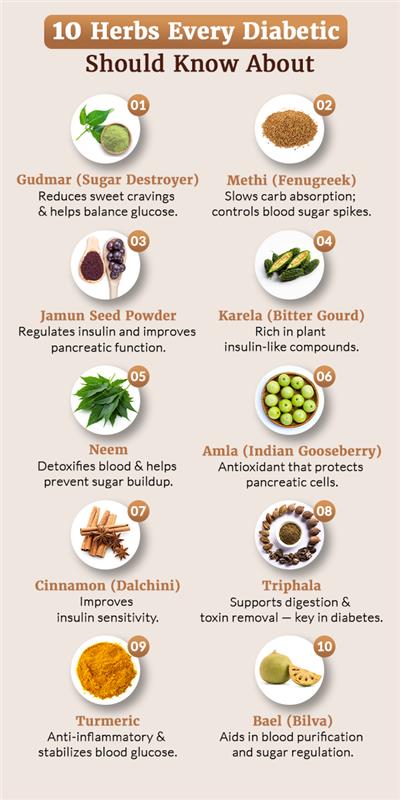Diabetes is a long-term disease that has reached epidemic levels worldwide. The International Diabetes Federation states that more than 537 million adults have diabetes and the number is expected to rise to 643 million by 2030. Although there are effective treatments with modern medicine, Ayurveda presents a comprehensive system for handling the disease by treating its causes.
Diabetes in Ayurveda is referred to as Madhumeha (“sweet urine”). It is considered a Kapha dosha imbalance first and foremost, which may interfere with metabolic functions and impair the digestive fire (Agni). If the body tissues fail to receive a proper nourishment, excess sugar is eliminated through the urine.
Understanding the Types of Diabetes
Ayurveda and conventional medicine categorize diabetes according to different parameters, providing differential insights.
According to Modern Medical Science:
Type 1 Diabetes: A condition in which the immune system of the body attacks and kills the cells that produce insulin in the pancreas.
Type 2 Diabetes: The most prevalent form, in which the body fails to secrete enough insulin or does not respond properly to insulin. It is usually associated with lifestyle.
Prediabetes: A state when blood glucose levels are elevated but not to the extent to classify one as diabetic.
On Ayurvedic Principles:
Ayurveda classifies diabetes into different categories depending on the cause and the prevailing dosha.
Avarana (Obstructive Diabetes): This form results from a blockage of the channels of the body (srotas) as a result of excess Kapha dosha. This is the case with Type 2 diabetes, in which the cells of the body develop insulin resistance.
Dhatukshaya (Wasting Diabetes): This category involves the wasting away of the body’s tissues (dhatus). It is typically associated with a very severe Vata dosha imbalance and is similar to Type 1 diabetes, where the body’s tissues literally waste away.
Ayurvedic Treatment and Lifestyle
Ayurveda does not guarantee a cure for diabetes but seeks to control it by enhancing digestion, cleansing the body, and enhancing insulin function.
1. Root Lifestyle Habits
Optimize Metabolism (Agni): A robust digestive fire is responsible for avoiding the spikes in blood sugar. Have your most substantial meal during noon when your digestive fire is highest. Refrain from eating late in the evening or taking cold, heavy, processed foods that will dampen Agni and excite Kapha.
Daily Movement (Vyayama): Moderate exercise is a must. Physical activity, or Vyayama, as described in ancient Ayurvedic classics, makes the body strong, increases blood circulation, and helps in achieving a balanced weight. Vyayama increases the body’s sensitivity to insulin, which plays a vital role in regulating blood sugar levels.
Mind-Body Connection: Stress has a major role in blood sugar instability. Engage in daily meditation and Pranayama (breathing exercises) to soothe the nervous system and reduce stress.
2. Therapeutic Remedies and Herbs
Herbal Remedies: Some herbs are very effective in controlling blood sugar levels. Add them to your daily routine under the supervision of a practitioner.
Guduchi (Tinospora cordifolia): It is known to assist in regulating blood sugar and playing a mighty anti-inflammatory.
Neem: Its bitter nature is supposed to reduce blood sugar levels.
Turmeric: Curcumin, the active ingredient, possesses strong anti-inflammatory properties that can go a long way in preventing complications of diabetes.
Amla (Indian Gooseberry): Being full of antioxidants and Vitamin C, Amla aids in general metabolism.
Panchakarma Detoxification: As a more holistic treatment, a trained Ayurvedic physician might prescribe Panchakarma, which is a regimen of cleansing therapies. Vamana (therapeutic vomiting) and Virechana (therapeutic purgation) are commonly employed to remove excess Kapha and toxins from the system.
External Therapies: For dealing with complications such as diabetic neuropathy, therapies such as Abhyanga (warm oil massage) are very useful. Medicated oil massage of the feet and hands can enhance circulation and calm the nerve endings, alleviating symptoms such as tingling and numbness.
Diabetes is an escalating global health issue, but with the proper strategy, it can be well controlled. While contemporary medicine offers necessary diagnostics and pharmaceuticals, Ayurveda provides a potent, holistic approach. With an emphasis on healthy eating, regular exercise, and targeted herbs and treatments, you can regain balance in your body, avoid blood sugar surges, and enhance your overall well-being and quality of life.












